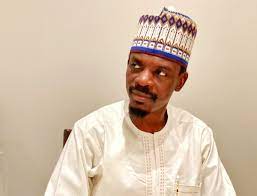Former media aide to ex-President Muhammadu Buhari, Bashir Ahmad, has said the killing of Deborah Samuel in 2022 had nothing to do with Sharia law, insisting that the incident was an act of unlawful mob violence that Islam does not condone. Ahmad made the statement on Monday through his verified X (formerly Twitter) account, drawing attention to what he described as a widespread misunderstanding of Islamic law in public discussions.
Deborah Samuel, a female student at Shehu Shagari College of Education in Sokoto, was lynched by some male students who accused her of insulting Prophet Muhammad in a WhatsApp group. The case sparked national outrage and international condemnation, with many Nigerians questioning the role of religion and the handling of the incident by security agencies.
In his post, Ahmad stressed that the killing was not supported by any Islamic legal principle. He described it as an act of mob justice that goes against the teachings of Islam and the rules guiding Sharia legal processes.
“It is important for people to know that the killing of Deborah had absolutely nothing to do with Sharia law. What happened was an act of extrajudicial mob violence,” he wrote.
According to him, Islam does not permit individuals or groups to take the law into their own hands under any circumstance. He explained that cases involving accusations of blasphemy or other serious offences must pass through a competent court where evidence, due process, and legal representation are guaranteed.
“Sharia does not in any way authorize mob action, lynching, or taking the law into one’s own hands,” he said.
Ahmad also pointed out that Deborah, who was a Christian, could not have been tried under Sharia criminal law because it applies only to Muslims.
“In fact, under Sharia law, Deborah could not have been prosecuted because she was not a Muslim and Sharia criminal liabilities apply only to believers,” he said.
He added that many Nigerians do not realize that a proper Sharia court would never handle a case involving a non-Muslim accused of blasphemy. Instead, such matters would fall under the regular criminal justice system.
His explanation aligns with the structure of Sharia in northern Nigeria, where Islamic law operates for Muslims in matters such as inheritance, marriage, and certain criminal offences, while non-Muslims are subject to the conventional legal system.
Ahmad went further to argue that if the individuals who killed the late student were to be tried under proper Sharia provisions, they would face severe punishment, possibly even the death penalty.
“Many people also do not know that if those who unlawfully killed her were to be tried under the actual provisions of Sharia, they could face the death penalty. The Sharia principle is very clear: ‘a soul for a soul’ and ‘an eye for an eye’,” he stated.
By highlighting this principle, Ahmad said the mob responsible for the killing violated Islamic justice, which demands that no one should be harmed without a lawful and fair trial.
Deborah Samuel’s killing on May 12, 2022, sparked nationwide debates about religious intolerance, mob justice, and the role of security agencies in preventing such crimes. She was accused of posting a voice note on her class WhatsApp platform criticizing how religious messages were being circulated in the group.
Videos shared on social media showed a mob beating and stoning her before setting her body on fire. The Sokoto State Government confirmed the incident and closed the school temporarily. Police later announced a few arrests, but many Nigerians complained that justice was slow and limited.
Human rights groups, civil society organizations, and Christian bodies condemned the lynching and demanded that the perpetrators face trial. The case also drew international attention, with global media outlets reporting the incident as part of Nigeria’s struggle with religious extremism and weak law enforcement.
Ahmad’s recent statement appears to be part of a broader attempt to correct what he sees as wrong interpretations of Sharia law in discussions about the incident. He noted that many Nigerians, both Muslims and non-Muslims, often misunderstand how Sharia courts operate.
He warned that linking mob violence to Sharia was not only incorrect but also harmful to public understanding of Islamic teachings.
“Islam is completely against mob justice and prescribes severe punishment for anyone who kills without lawful authority,” he said.
According to him, Islamic law emphasizes fairness, evidence, and due process. Only a qualified court, not a crowd, can determine guilt or innocence.
Ahmad’s comments have triggered mixed reactions online. While some social media users agreed with his explanation, others argued that religious extremism still plays a role in such killings, even if not formally backed by Sharia law.
Some Nigerians also pointed out that even though Sharia may not support mob justice, the culture of silence and fear sometimes prevents authorities from prosecuting offenders, especially when large groups are involved.
The debate surrounding Deborah’s killing has continued to highlight Nigeria’s challenge with mob violence and the need to strengthen law enforcement. Legal experts say public education on religious laws, citizens’ rights, and criminal procedure is necessary to prevent similar incidents in the future.
More than two years after the incident, the killing of Deborah Samuel remains a painful reminder of Nigeria’s struggle to balance religious beliefs, rule of law, and social harmony.
Bashir Ahmad’s latest comments bring renewed attention to the case, especially as Nigerians continue to debate how best to prevent mob attacks and ensure justice is served through lawful means.

